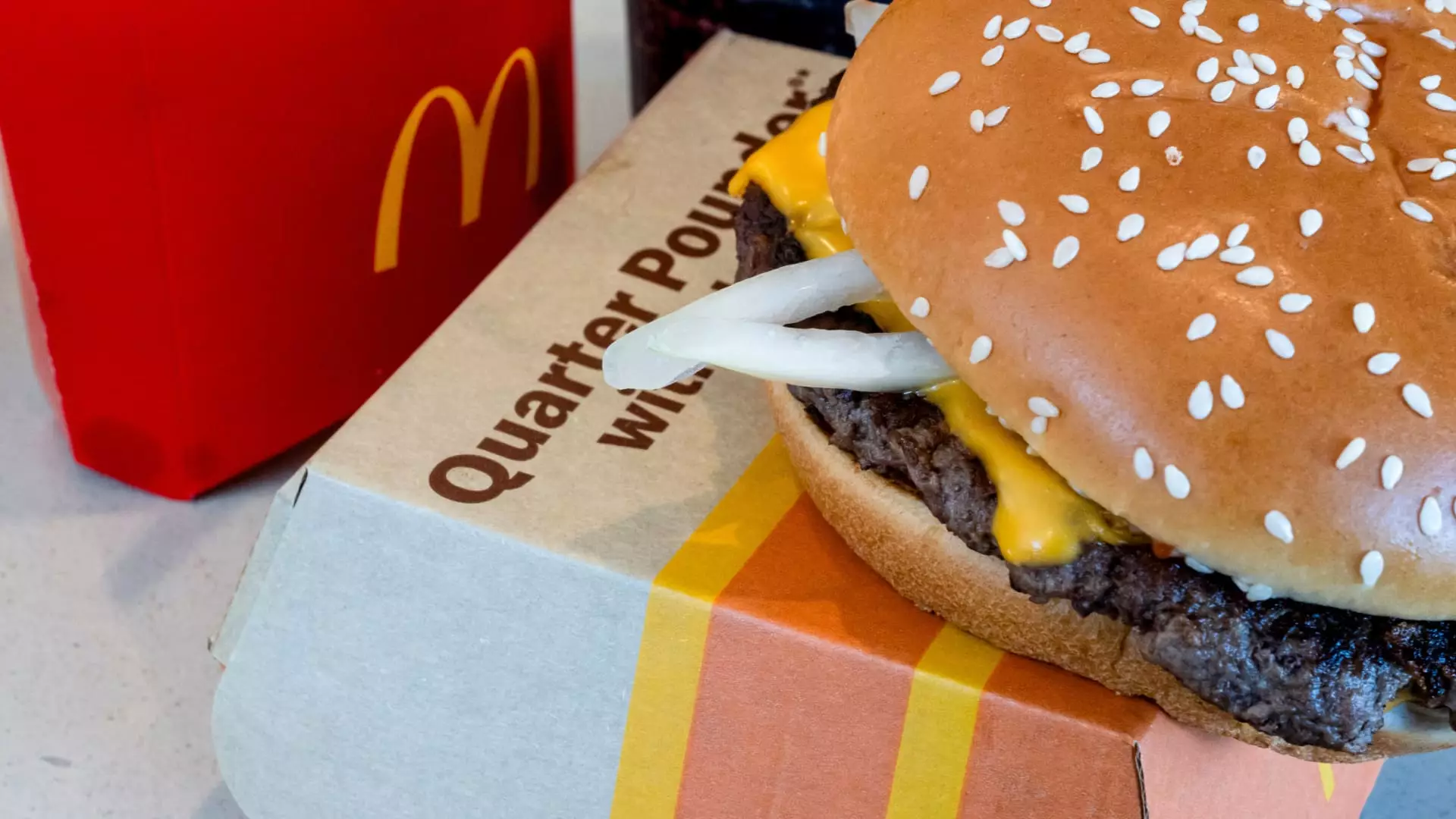The recent E. coli outbreak connected to McDonald’s Quarter Pounder hamburgers has ignited serious health concerns and economic implications, affecting consumers and the fast-food giant alike. This outbreak, which has resulted in 75 reported cases across 13 states, is currently under scrutiny by the Centers for Disease Control and Prevention (CDC). This article delves into the details surrounding the outbreak, its implications for public health, and the corporate response from McDonald’s.
The CDC has identified that the outbreak has led to 22 hospitalizations and one fatality attributed to an older adult in Colorado. Among the 61 patients for whom information was available, nearly 36% have required hospitalization. Alarmingly, two individuals developed hemolytic uremic syndrome, a serious health condition that can lead to kidney failure. The demographic impacted ranges widely, with ages spanning from 13 to 88 years.
What is of particular concern is the CDC’s assertion that the reported figures may significantly underestimate the true scope of the outbreak. Many individuals may recover from E. coli infections without seeking medical care or undergoing testing, thus not being accounted for in official statistics. The typical process of confirming one’s participation in an outbreak is prolonged; it can take three to four weeks before health officials ascertain whether a patient belongs to the affected group.
The news of the outbreak has resonated across the stock market, with McDonald’s shares declining by 2% in a single day following the CDC’s announcement, and a cumulative dip of 6% since the initial report of the outbreak. The implications for McDonald’s, which has relied heavily on the Quarter Pounder as a staple of its menu and a significant revenue generator, are profound. Given that this product brings in billions in sales annually, the potential for customer aversion poses a considerable risk to the company’s financial standing.
In a proactive response, McDonald’s has taken measures to mitigate further risk by halting the use of slivered onions—a key ingredient in the Quarter Pounder—across 13 states, including Colorado, Kansas, and Utah. The onions are attributed as a likely source of contamination, and McDonald’s has distanced itself from its supplier, Taylor Farms, which has recently issued a recall on four raw onion products due to possible E. coli contamination.
Furthermore, as precautionary measures extend throughout the fast-food industry, other chains such as Burger King, Pizza Hut, KFC, and Taco Bell have also opted to remove onions from selected locations. The overarching concern regarding food safety has united various fast-food establishments in their response to the situation.
As federal agencies continue their investigations into the outbreak, the repercussions could linger long past the immediate health crisis. McDonald’s is in a precarious situation as it attempts to reassure consumers about the safety of its food offerings while simultaneously dealing with the fallout from this incident. With the fast-food giant poised to report its third-quarter earnings, there will likely be heightened scrutiny regarding how the outbreak affects customer traffic and, ultimately, sales figures.
The strategic shift towards value-oriented meals amid decreasing footfall in U.S. restaurants reveals a market that is becoming increasingly price-sensitive. Analysts predict a modest growth of 0.5% in same-store sales, a stark contrast to the numbers that McDonald’s might have anticipated under more stable circumstances.
In terms of public health policy, this outbreak raises significant questions regarding food safety regulations and monitoring systems in place within the fast-food industry. A thorough review of practices may be warranted to prevent future occurrences of similar outbreaks, ensuring that consumer health is prioritized while maintaining the integrity of food supply chains.
While the immediate health risks associated with the E. coli outbreak at McDonald’s must be addressed with urgency and thoroughness, the longer-term implications for the company and the fast-food industry as a whole merit careful observation. It is crucial for organizations in the food sector to remain vigilant and proactive, recognizing that consumer confidence in food safety is paramount to their continued success. As investigations unfold and responses to the outbreak develop, both public health officials and corporate entities must work collaboratively to safeguard public health and restore trust in the industry.

